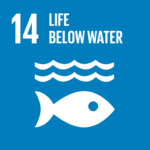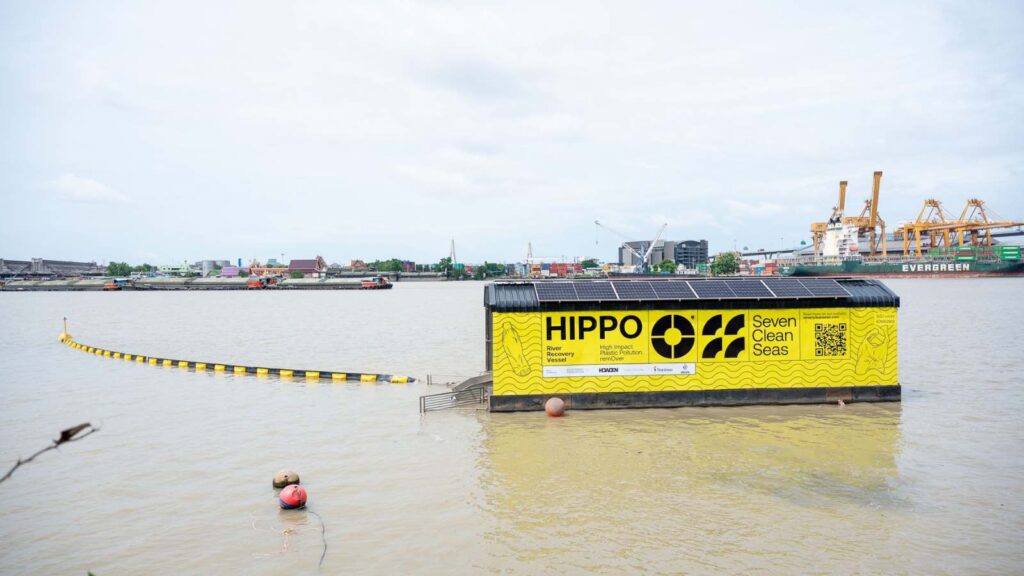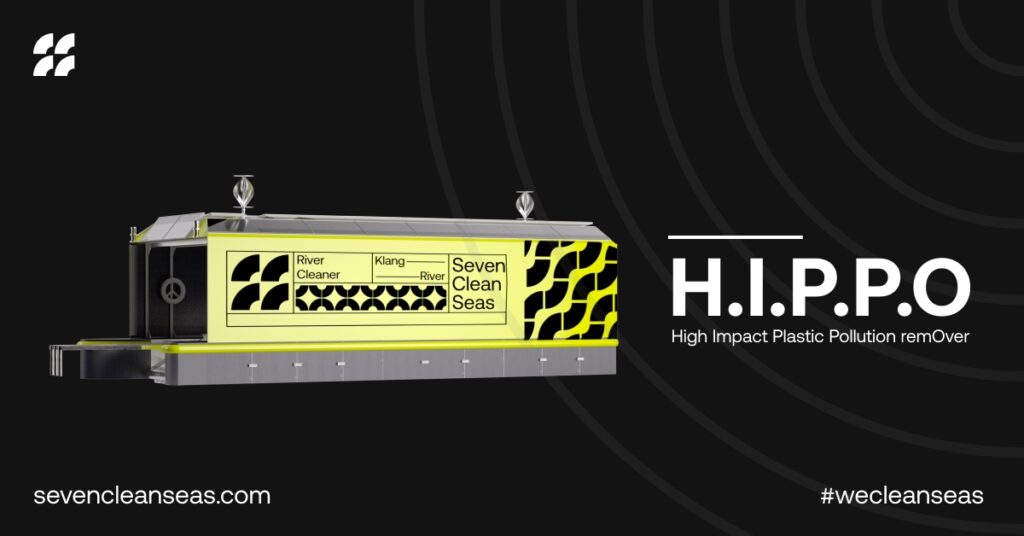Given the success in Indonesia, Seven Clean Seas has now expanded in Thailand to address riverine plastic in Thailand’s major river, Chao Phraya utilising an innovative, low-tech, low-cost, high impact pollution remover called HIPPO.
In a significant move to combat one of the world’s most pressing environmental issues, Seven Clean Seas has launched its innovative HIPPO (High Impact Plastic Pollution remOver) in Bangkok’s Chao Phraya River. This milestone marks the organization’s first project in Thailand, a country that, along with a handful of others, contributes to half of the world’s ocean plastic pollution.
RELEVANT SUSTAINABLE GOALS



The HIPPO: Turning The Tide On River Ocean Plastics
The Chao Phraya, Thailand’s largest river and a vital waterway for 13 million people, ranks as the country’s top plastic-emitting river and 15th globally. Annually, it channels approximately 4 million kilograms of plastic waste into the ocean, raising serious concerns about microplastic pollution in its surface and sediment.
Seven Clean Seas, building on its success in Indonesia, has expanded its operations to Thailand to tackle this critical issue. The organization has developed the HIPPO, an automatic, solar-powered, and scalable vessel designed to collect riverine plastic at scale. This innovative approach aims to enhance the development of circular solutions, from intercepting ocean plastics to sorting and recycling.
How IT Works
The HIPPO operates through a simple yet effective mechanism. Positioned in an intertidal zone by the riverbank near Wat Chak Daeng temple, it uses a single boom to convey floating debris towards the vessel. A solar-powered conveyor then automatically collects the waste, which Seven Clean Seas crews unload for sorting and recycling.
This project is a collaborative effort involving multiple government stakeholders and The International Union for Conservation of Nature (IUCN) as an implementation partner. Seven Clean Seas has also forged a partnership with Wat Chak Daeng, a Thai Buddhist temple known for its pioneering plastic waste and recycling initiatives.
Beyond collection, Seven Clean Seas is advancing its capabilities in sorting and treating plastic waste. The organization separates recyclables from non-recyclables, transforming the former into products like furniture. Non-recyclable plastics, such as multilayered materials, are repurposed into building products like bricks and roof tiles.
While acknowledging the impact of intercepting riverine plastic, Seven Clean Seas recognizes the unique complexities and financial costs associated with such efforts. The HIPPO represents a scalable solution to these challenges, offering hope for a cleaner, more sustainable future for Thailand’s waterways and, by extension, the world’s oceans.
Lead image courtesy of Tom Peacock-NazilTom Peacock-Nail via LinkedIn
You may also be interested in :
Thailand Ramps Up Recycling Efforts For UHT Cartons With Nationwide Initiative



